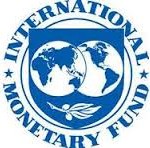Central European economies not performing up to potential, IMF warns

Falling productivity, low investment, and high migration are withholding central, eastern and southern European economies from returning to their pre-crisis potential, the International Monetary Fund has warned.
In its economic outlook for the region, the fund said that the region’s economies are no longer catching up with their advanced counterparts at the desired rate, as they were before the 2008 financial crisis.
“If this becomes the new normal, convergence [with advanced economies] will be much slower,” warned Anna Ilyina, head of the emerging economies division at the IMF’s Europe Department.
Unfavourable global conditions, such as mediocre growth in Europe’s advanced economies, are weighing on the productivity of economies in the region.
Ilyina pointed out that the region’s emerging economies are also not enjoying the same demographic dividends as their counterparts elsewhere, as substantial emigration has seen the flight of both skilled and unskilled labour.
Working-age populations are shrinking, and at a quicker rate than the European Union average.
Another factor at play is decline in investment since the 2008 crisis, which have failed to recover largely due to crisis legacies including non-performing loans and low domestic savings rates.
While Ilyina said there is “no single, simple formula” to boost convergence, some structural reforms appear able to bring about substantial growth benefits.
In order to retain labour and attract labour from elsewhere, the fund recommended measures to increase participation among females and older people, reduce structural unemployment and skill mismatches, and raise life expectancy.
It also said governments should work to improve the quality of institutions, which is a factor in skilled emigration, and will also result in efficiency gains.
Increasing government efficiency should also be a focus, as well as making financial services more affordable, in particular for small but productive firms.
Any structural or institutional obstacles to the efficient use of available technologies or the efficient allocation of resources should also be addressed.
With particularly wide investment gaps in infrastructure, increased public investment has a role to play.
However, the fund said this “on its own would not be enough”. As well as the measures above, easing business regulations and restrictions on foreign direct investment will be beneficial, it said.
While growth throughout the region remains “robust”, the fund warned that risks to the outlook have risen.
Building fiscal buffers and accommodative monetary policy will help to protect countries against low growth in the euro area and the US, tighter global financial conditions and the slowdown in emerging economies.
In addition, the fund noted political risks, including uncertainty in Ukraine and Poland and political populism, as well as risks from the refugee crisis, have been on the rise across the region.
Nevertheless, the fund anticipates higher growth this year in the majority of countries, including the Baltics (2.8%), EU countries in southeastern Europe (3.5%), non-EU countries in southeastern Europe (2.7%) and Ukraine and Belarus (0.2%).
Turkey’s growth is expected to remain the same in 2016, at 3.8%, before a decline to 3.4% next year.
While Russia will see an improvement on last year, the economy is expected to remain in recession at -1.8% until 2017, when the IMF anticipates a return to 0.8% growth.
Source: Public Finance International




























